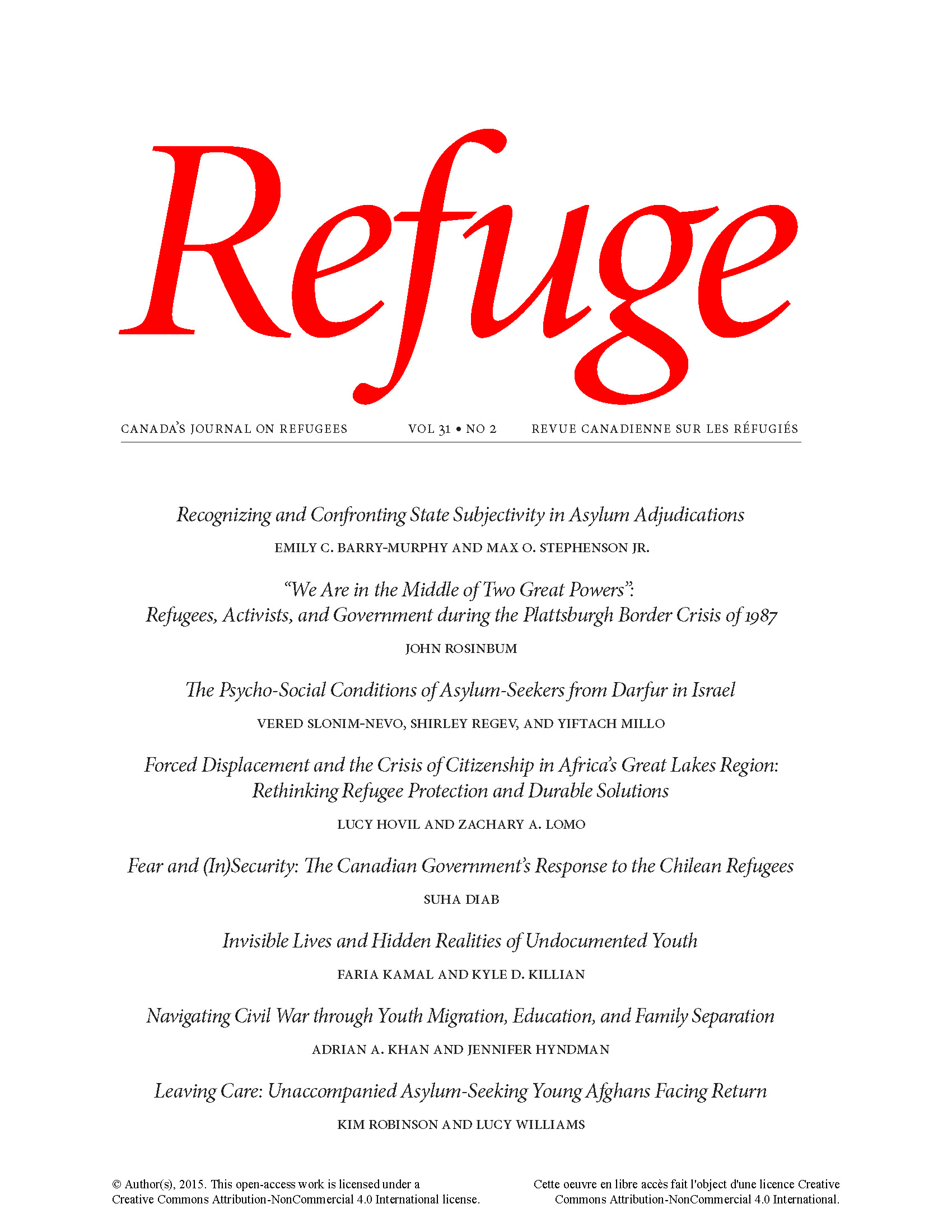Forced Displacement and the Crisis of Citizenship in Africa’s Great Lakes Region: Rethinking Refugee Protection and Durable Solutions
DOI:
https://doi.org/10.25071/1920-7336.40308Keywords:
Africa, Great Lakes region, forced displacement, refugee protection, durable solutions, citizenship, repatriation, belongingAbstract
This article explores refugee protection and durable solutions in Africa’s Great Lakes region by examining conflict, displacement, and refugees in the light of the crisis of citizenship. Drawing on empirical data from nine studies across the region, we scrutinize the causes of conflict and displacement and refugee policies and practice in the region through the lens of citizenship. First, we argue that the continued plight of many refugees in the region without durable solutions results, at least in part, from an endemic and systemic inability of many people in the region to realize citizenship in a meaningful way. This inability, we argue, is a significant contributor to the continued forced displacement of millions of people, with many still refugees, even after living in the host states for over three decades. Second, we argue that solutions are failing because discussions about the root causes of refugee influxes and movements often fail to capture the intricately connected historical, political, social, economic, religious, and legal factors that engender displacement. We submit that full and equal enjoyment of the rights and benefits of citizenship by all, including access to citizenship for refugees, is one means of resolving displacement and providing durable solutions to refugees.
Metrics
Downloads
Published
How to Cite
Issue
Section
License
Copyright (c) 2015 Lucy Hovil, Zachary A. Lomo

This work is licensed under a Creative Commons Attribution-NonCommercial 4.0 International License.
Refuge authors retain the copyright over their work, and license it to the general public under the Creative Commons Attribution-Non Commercial License International (CC BY-NC 4.0). This license allows for non-commercial use, reproduction and adaption of the material in any medium or format, with proper attribution. For general information on Creative Commons licences, visit the Creative Commons site. For the CC BY-NC 4.0 license, review the human readable summary.







